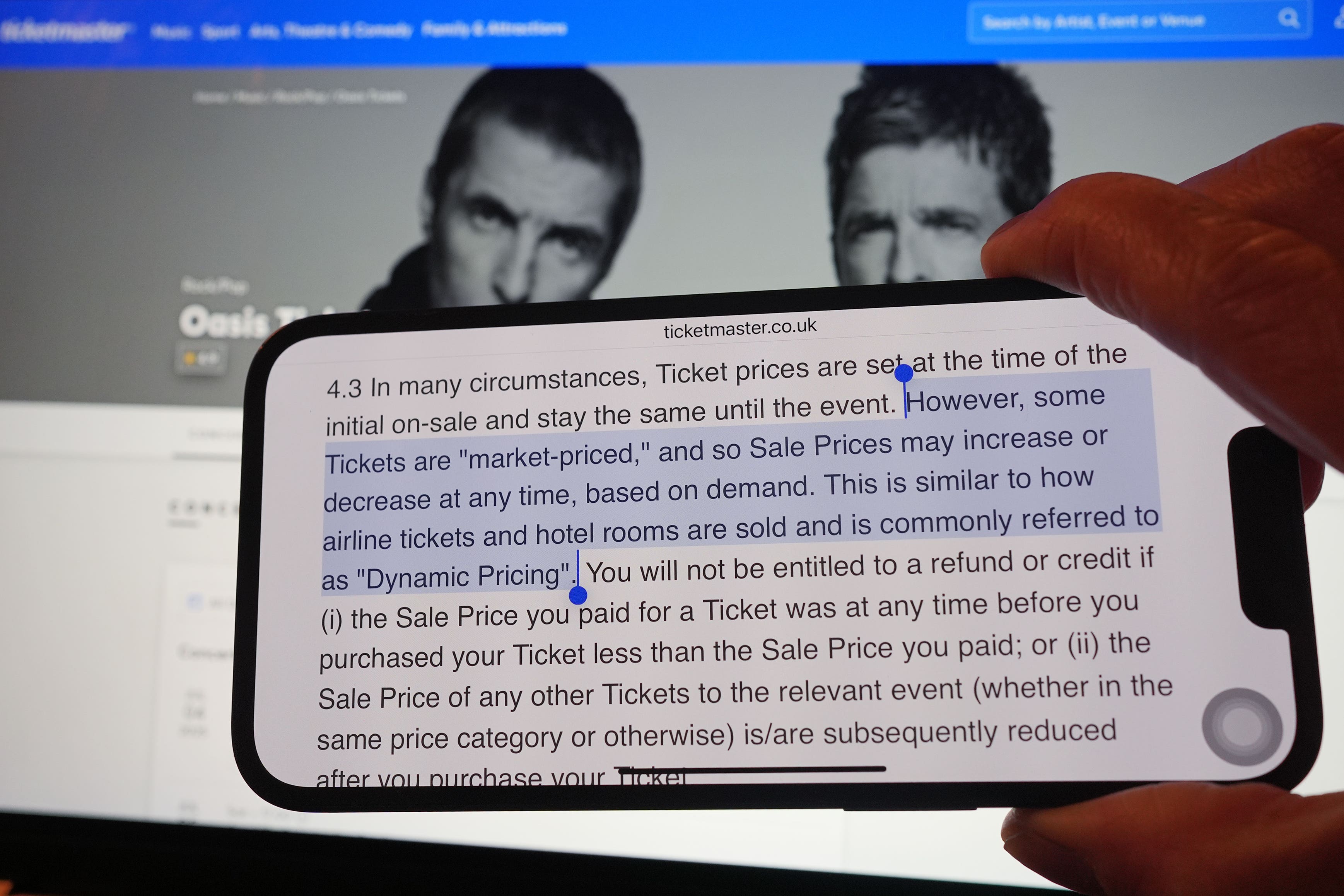One Oasis fan lost more than £1,700 after they fell for a ticket scam for the band’s long-awaited reunion tour.
Lloyds Banking Group says fans have been stung by a wave of ticket scams since the band’s reunion tour went on sale and lost more than £2 million collectively.
This estimate, based on fraud reports from Lloyds customers, reveals a worrying trend impacting music fans eager to see the iconic band.
Oasis ticket scams represent a significant portion – 56 per cent – of all concert ticket fraud reported to Lloyds this year.
Fans are losing an average of £436 each, a figure significantly higher than the average concert ticket scam loss.
One unfortunate fan was defrauded of more than £1,700, highlighting the lengths some are willing to go to for tickets and the potential for substantial financial losses.
The data suggests many fans are paying well over face value in their desperation to secure a spot at the highly anticipated reunion shows.
Those aged 35 to 44 appear most vulnerable, accounting for 30 per cent of reported cases. This demographic’s eagerness to relive their youth at an Oasis concert may be contributing to their increased risk of falling victim to these scams.

Edinburgh, Warrington and Manchester have the highest numbers of victims of scams, with the top 10 locations overall making up a quarter (25 per cent) of cases, the banking group said.
Get a free fractional share worth up to £100.
Capital at risk.
Terms and conditions apply.
Go to website
ADVERTISEMENT
Get a free fractional share worth up to £100.
Capital at risk.
Terms and conditions apply.
Go to website
ADVERTISEMENT
The bank found there had been more than 1,000 cases reported since fans’ scramble for tickets started last summer.
Based on its share of banking customers, it estimates that across the UK there are likely to have been at least 5,000 victims since tickets went on sale, with more than £2 million lost to fraudsters.
The analysis was based on concert ticket purchase scams reported by Lloyds Banking Group customers, including customers of Lloyds Bank, Halifax and Bank of Scotland, where Oasis was referenced as part of the claim, between August 2024 and March 2025.
In a warning about where many scams are originating, the bank highlighted unofficial groups set up on social media, dedicated to buying and selling tickets for the Oasis tour.
Purchase scams happen when someone is tricked into sending money via bank transfer to buy goods or services that do not exist.
Lloyds said ticket scams often involve fake adverts, posts or listings on social media, offering tickets at discounted prices, or access to events that have already sold out at inflated prices.
Fraudsters will also exploit fans’ willingness to pay more for scarce tickets by falsely claiming to have them available.
Victims are asked to pay upfront for the tickets and scammers vanish after receiving the money.

Scams often happen in two waves – the first when tickets are released for sale, and again as the event date approaches.
Liz Ziegler, fraud prevention director at Lloyds, said: “The Oasis tour is the latest target for ticket scammers, with millions of pounds of fans’ money stolen before the gigs even kick off.
“The fact that so many cases start with fake listings on social media, often in violation of the platforms’ own rules, underscores the importance of these companies taking stronger action to tackle scams.
“It’s vital that consumers feel empowered to shop safely online. Buying directly from reputable, authorised retailers is the only way to guarantee you’re paying for a genuine ticket.
“If you’re asked to pay via bank transfer, particularly by a seller you’ve found on social media, that should immediately set alarm bells ringing.”
Lisa Webb, a consumer law expert at Which? said: “Scammers are always looking for new ways to part people from their hard-earned cash and unfortunately, Oasis tickets being in such high demand has created a perfect storm for criminals.”
She added: “If you spot any suspicious posts, you can report them to the social media platform and the National Cyber Security Centre to investigate.”
Guy Anker, personal finance expert at website Compare the Market, said: “With big-name tours generating huge demand, it’s important to remain vigilant to potential scams. When tickets are hard to come by, it can be tempting to buy from unofficial sources, but this often leads to disappointment and can cause significant financial loss.
“To help protect yourself, always try to book through trusted platforms, and consider using a credit card, which can sometimes offer extra protection under Section 75 if something goes wrong.”
If someone uses their credit card to make a purchase, the transaction could be covered under Section 75 of the Consumer Credit Act, which allows people to raise a claim with their lender if something goes wrong.
10 areas of UK where fans fell victim to ticket scams
Here are the top 10 hotspots where people are most likely to live who have reported falling victim to Oasis ticket scams, according to Lloyds Banking Group:
- Edinburgh
- Warrington
- Manchester
- Newcastle upon Tyne
- Sheffield
- Glasgow
- Nottingham
- Birmingham
- Plymouth
- Newport (South Wales)
How to safely buy tickets online
Here are some tips from Lloyds for buying tickets safely:
– Stick to trusted retailers
Buy tickets from reputable, official platforms. Be cautious when dealing with third-party sellers.
– Take care on social media
Fraudsters can easily create fake ads, even using images of real tickets.
– Consider whether a “bargain” is too good to be true
If a ticket is being sold at an unusually low price or for a sold-out event, this is a red flag. Consider whether the deal seems realistic.




